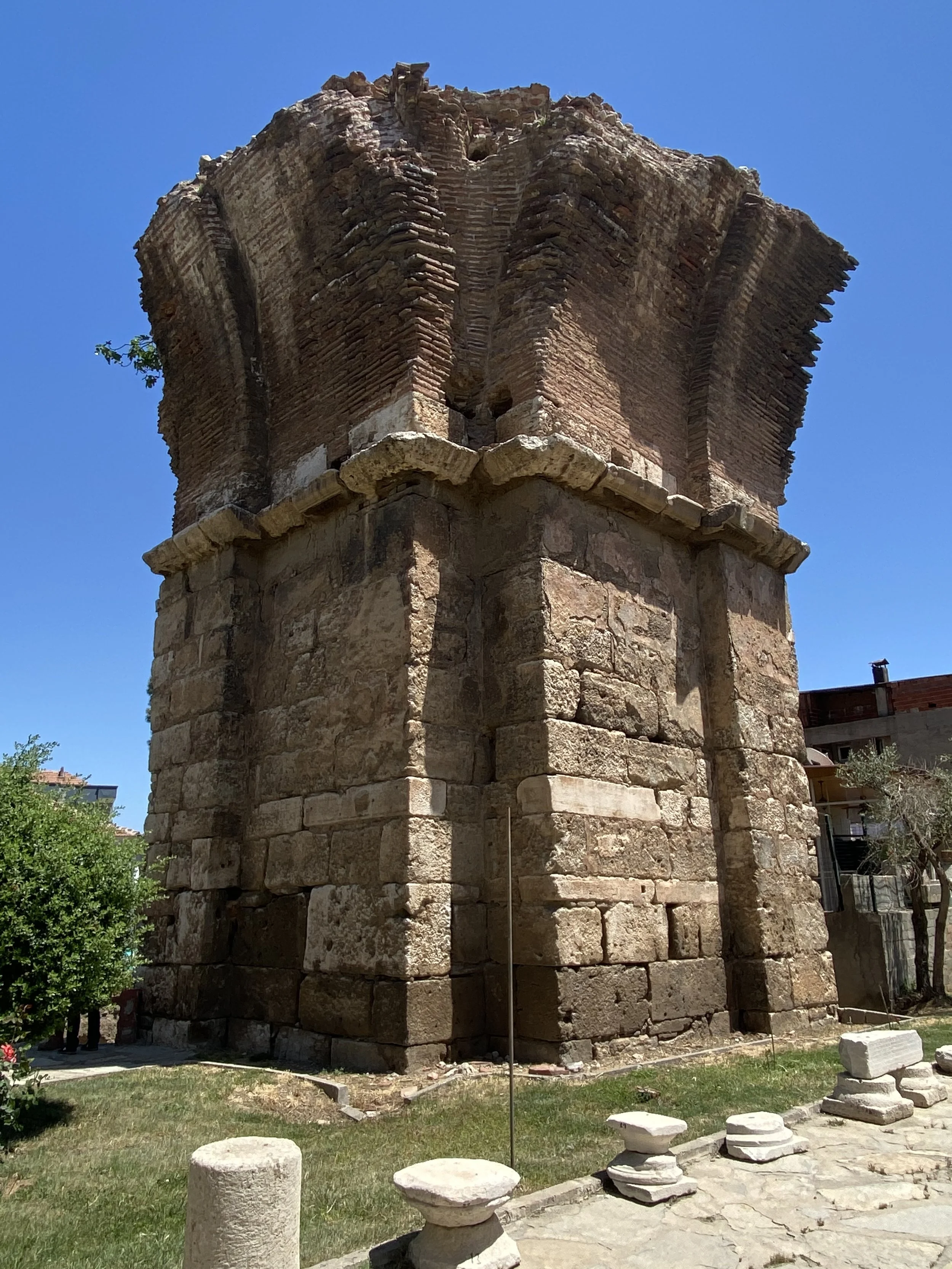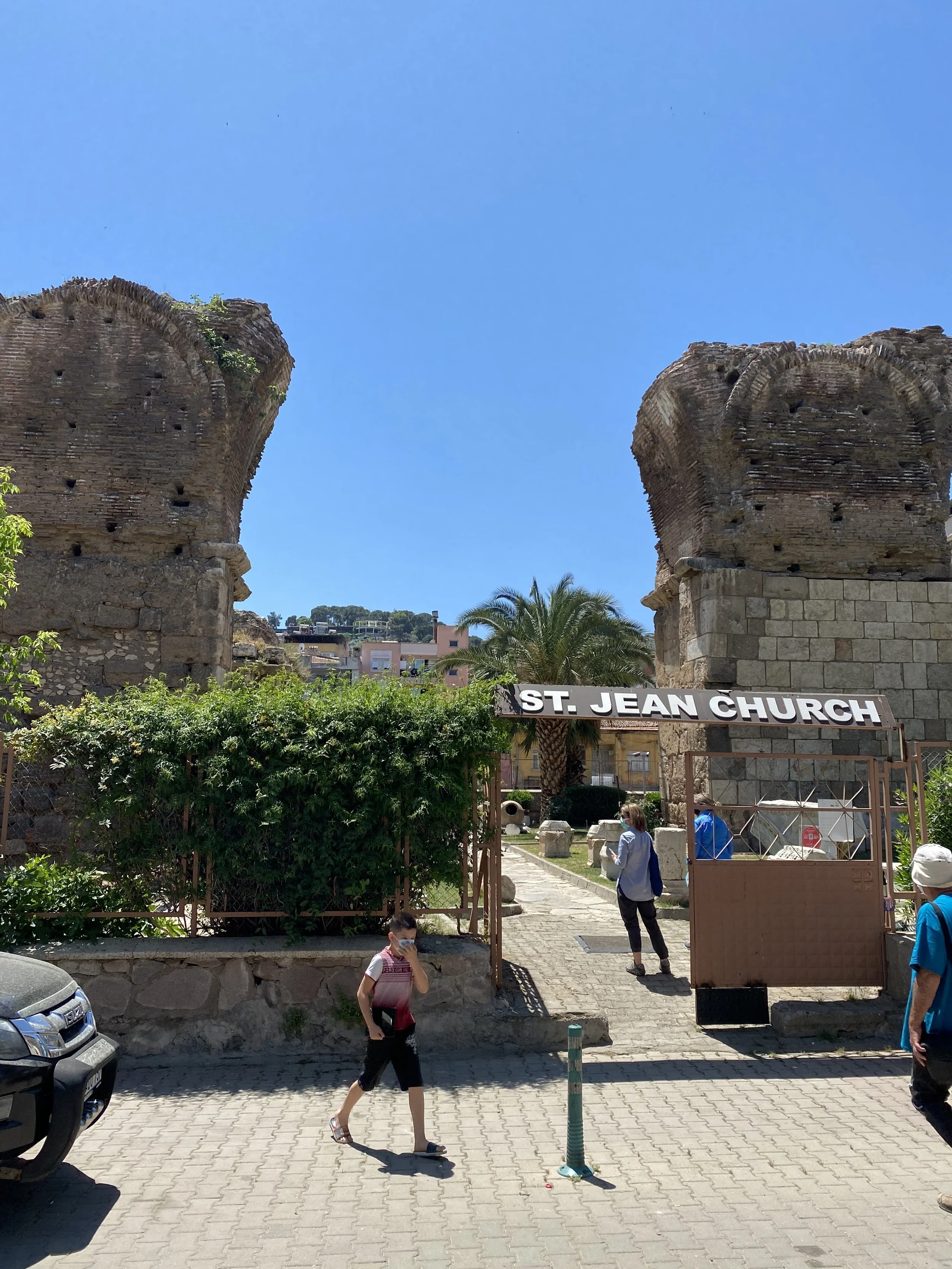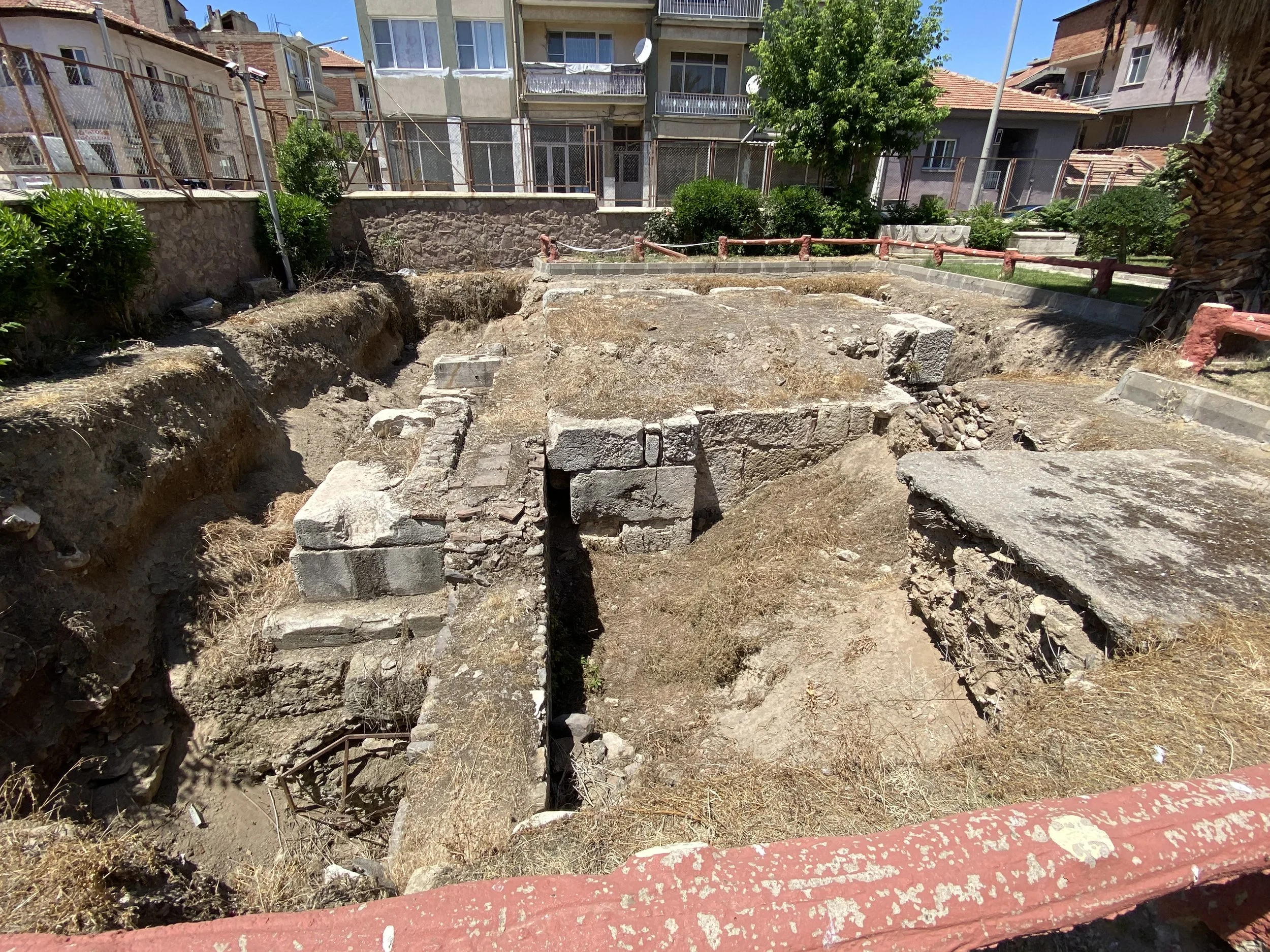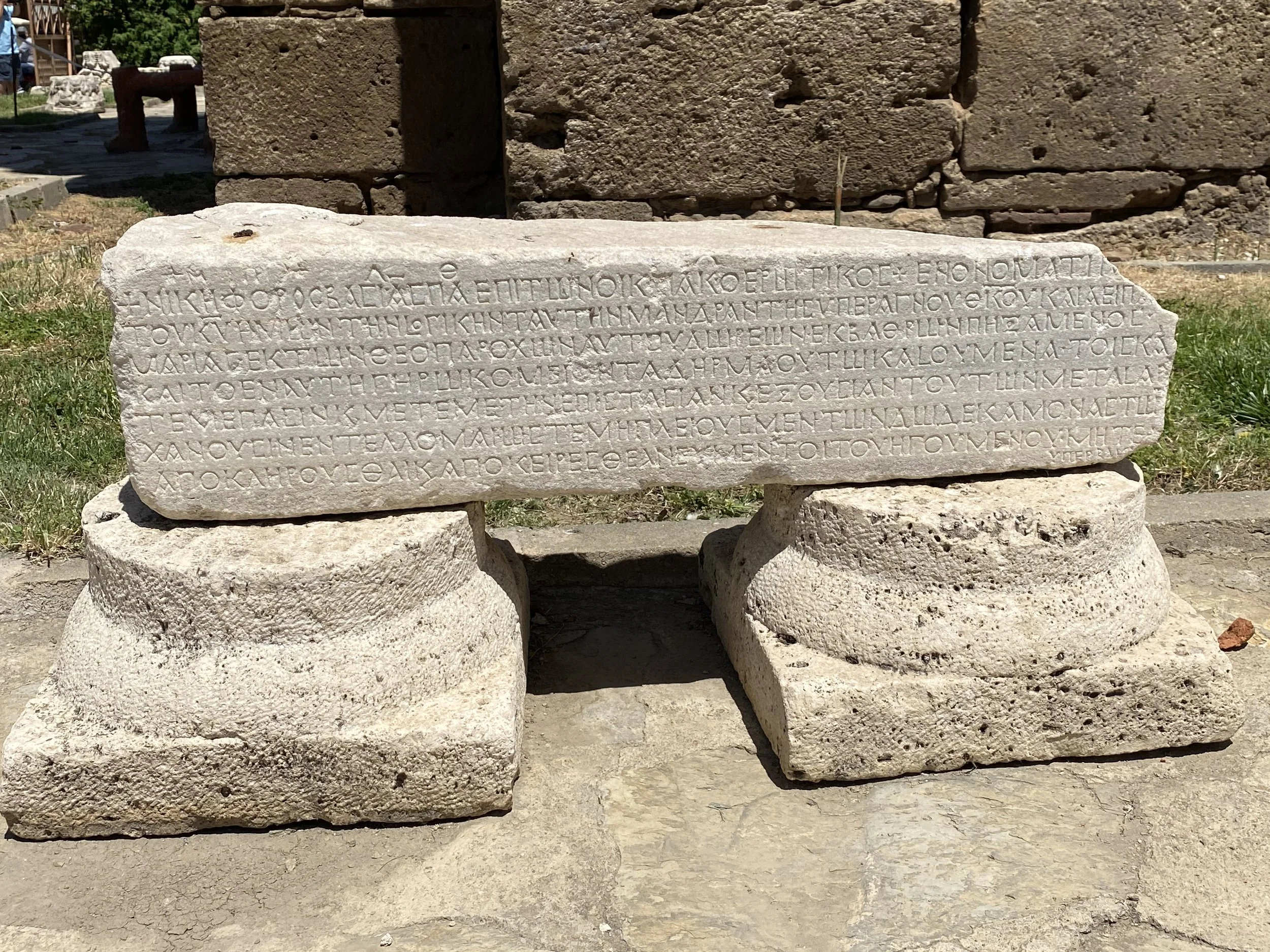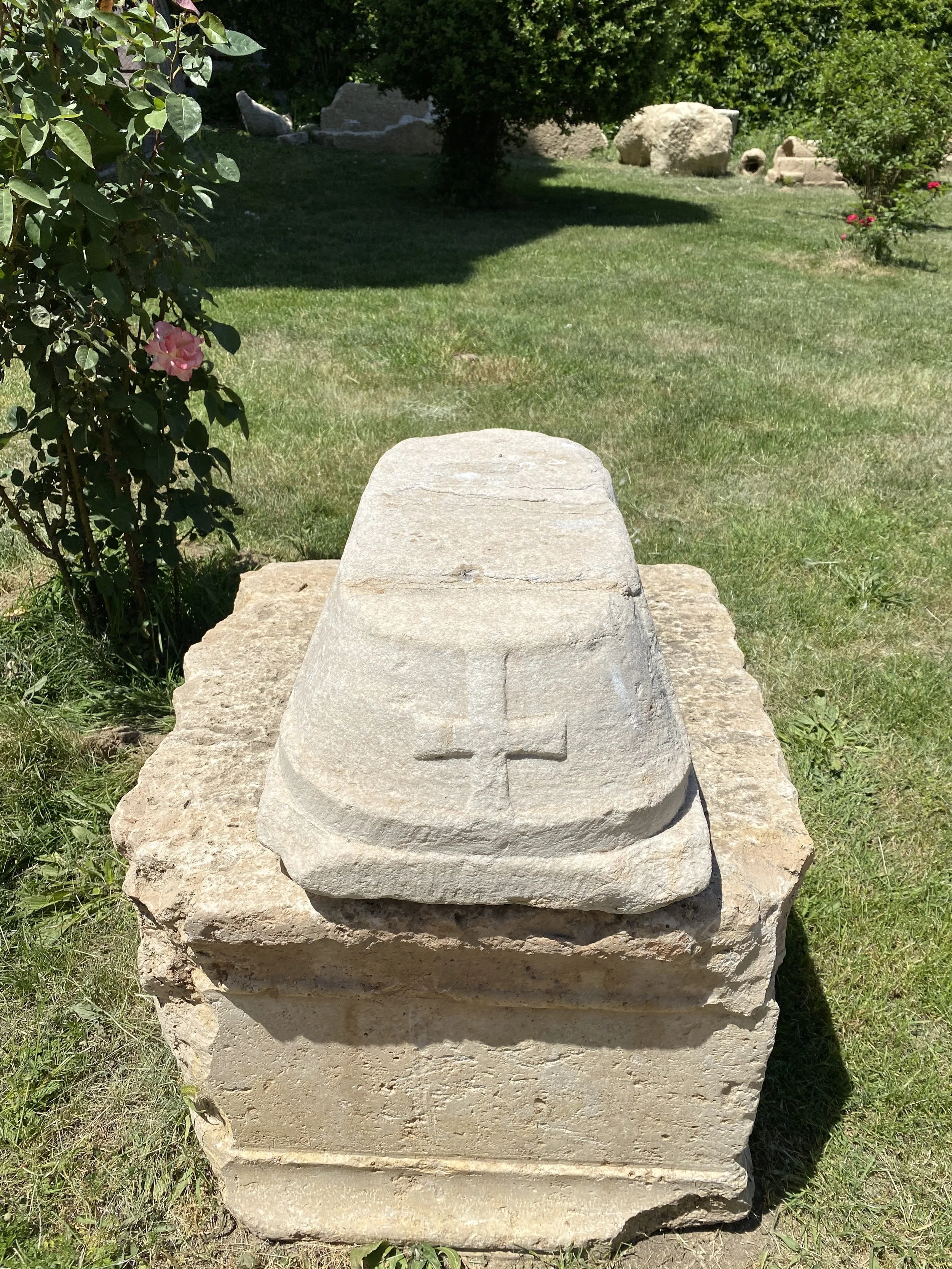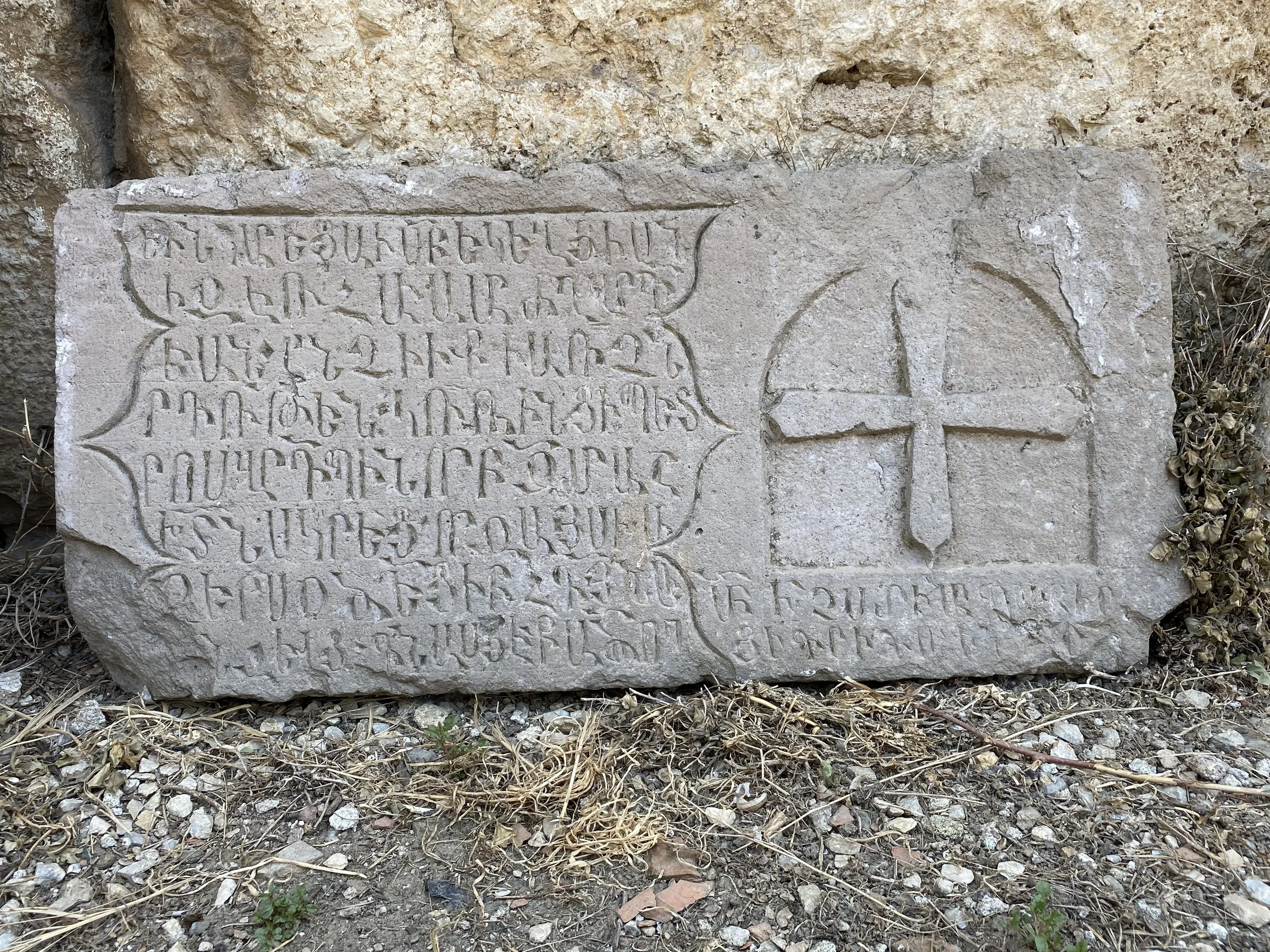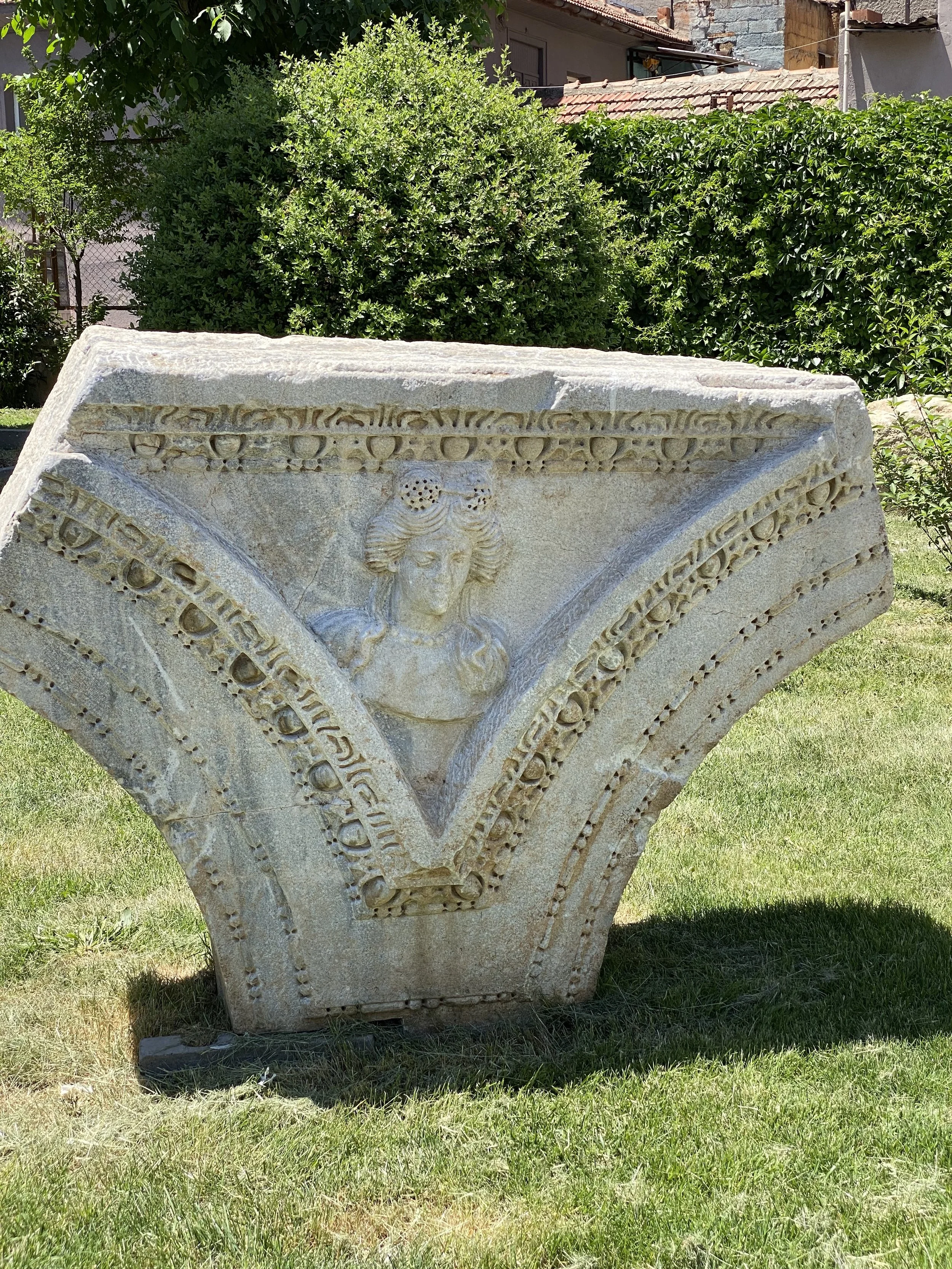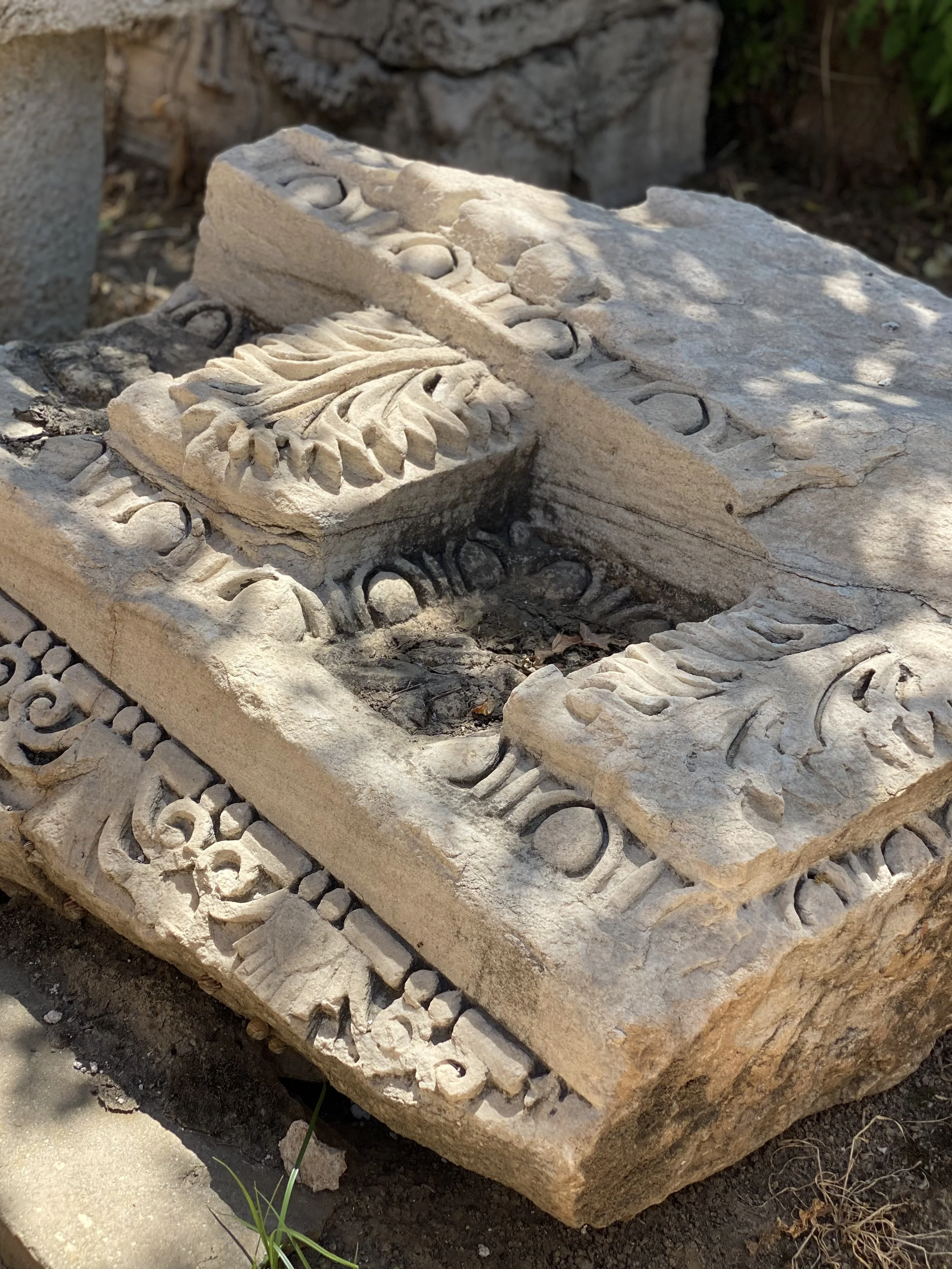Philadelphia, Asia Minor (Alsehir, Turkey)
“And to the angel of the church in Philadelphia write: ‘The words of the holy one, the true one, who has the key of David, who opens and no one will shut, who shuts and no one opens…. I know your works. Behold, I have set before you an open door, which no one is able to shut. I know that you have but little power, and yet you have kept my word and have not denied my name”. Revelation 3:7-8
The Christian community at Philadelphia, one of the 7 churches of Asia Minor receiving a message from Christ through St. John’s revelation, was given only compliments and encouragement in their message. They must have been a very faithful group, surrounded as they were in this city by many temples to pagan gods and by Jews who held them in contempt.
Philadelphia was founded in the mid second century BC by the Pergamene kingdom. The name of ‘brotherly love’ was used because of the stories of the love between the brothers Eumenes II and Attalus II of Pergamum. The brothers remained loyal to each other in spite of the treachery of others. Philadelphia became part of the Roman Empire in 133 BC when the Pergamene king gave his entire kingdom to Rome on his death. Philadelphia was located on a road to Sardis in the west and Tarsus in the southeast.
The modern Turkish city of Alsehir (which means “city of God”) is built over the ancient city of Philadelphia. There is an area near the middle of the city with the remains of a 7th century AD byzantine church dedicated to St John and set up as an archeological park. Massive arches of the church are partially preserved and lots of architectural pieces spread out over the yard. We visited very briefly in 2021 and did not have time to explore a few other remains from the Roman era - nearby excavations of a Roman stadium and theater and several sections of roman and byzantine city walls (next time!). This area has always been prone to earthquake. In 17 AD a catastrophic earthquake destroyed Sardis (30 miles northwest of Philadelphia) and heavily damaged Philadelphia. Emperor Tiberius waived taxes for Philadelphia for 5 years to aide in the recovery.
Early Christian church fathers established the importance of Philadelphia as early as the 2nd century BC. Ignatius wrote a letter to the church here to encourage them. Members of the Christian community of Philadelphia were martyred at same time Polycarp was martyred in Smyna. We pray that the Christian church today would stand as strong and faithful as the 1st century Christians of Philadelphia!
Philadelphia, Asia Minor

